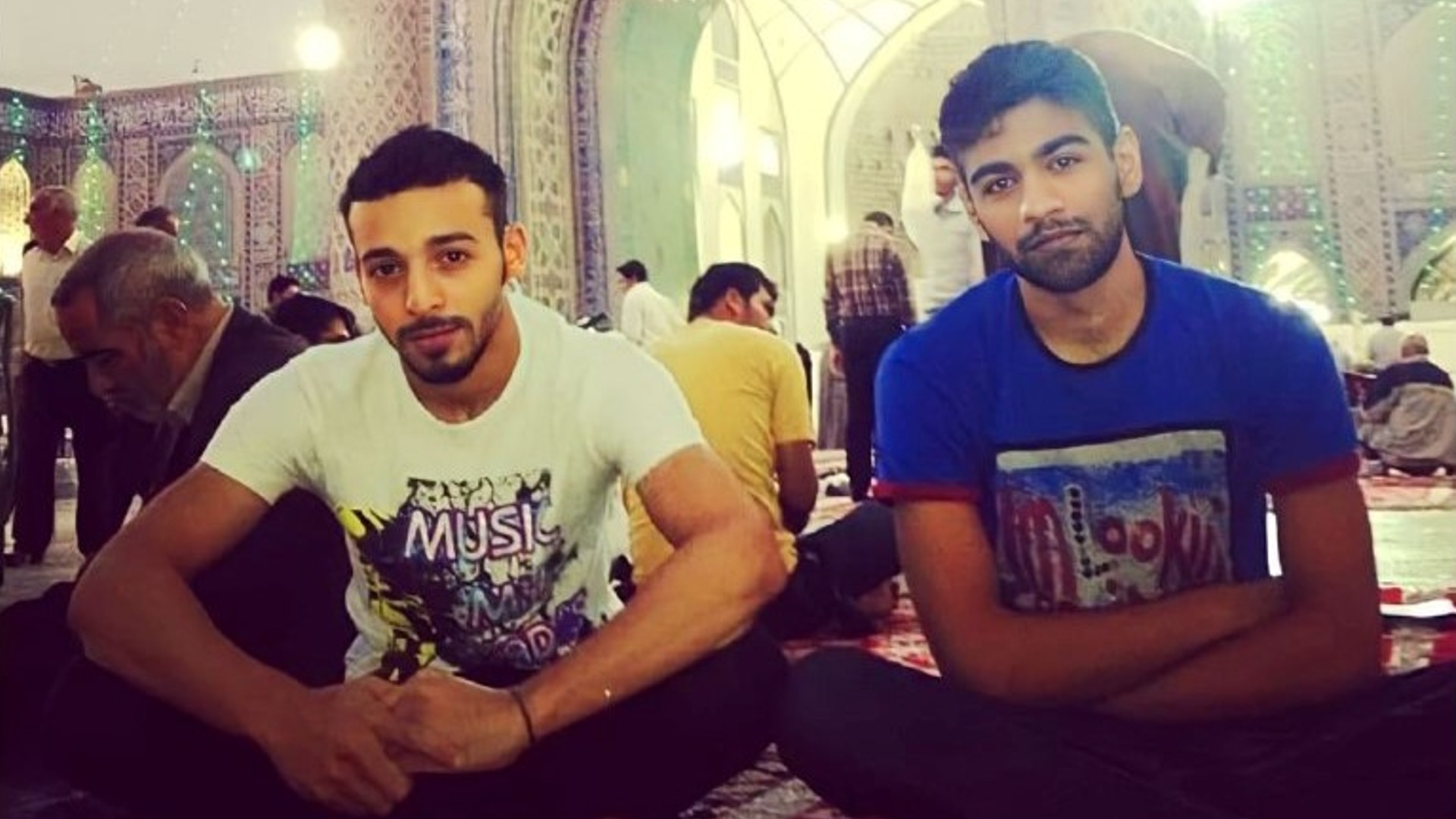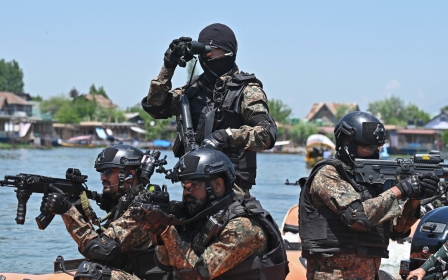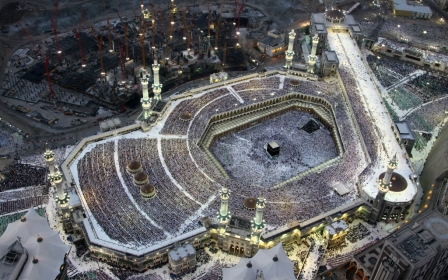Saudi Arabia executes three men in eastern region

Saudi Arabia has executed three men in the eastern region of the country, without having previously published any information on their cases.
The interior ministry released a statement on Monday confirming that Saudi nationals Hassan bin Issa al-Muhanna, Haidar bin Hassan Muwais and Mohammed bin Ibrahim Muwais had been put to death.
They were alleged to have joined a camp outside the country "in service of... terrorist organisations against the kingdom", possessed and been trained in the use of weapons and bombs, stored arms with the intent of "violating internal security", and smuggled wanted individuals outside the country.
"The three cases were not monitored at any of the judicial stages, as the Saudi government did not publish any official news about the arrest or their being wanted," the European Saudi Organisation for Human Rights (ESOHR), an NGO with offices in London and Berlin, said in a statement.
The rights group condemned the decision, stating that according to international law, countries that still implement the death penalty should only use it in the most "serious cases", namely premeditated murder.
New MEE newsletter: Jerusalem Dispatch
Sign up to get the latest insights and analysis on Israel-Palestine, alongside Turkey Unpacked and other MEE newsletters
"ESOHR's monitoring of death sentences and executions in Saudi Arabia is the gold standard, drawing on a comprehensive list of public sources," Jeed Basyouni, who leads the work in Middle East and North Africa for Reprieve, told Middle East Eye.
"It was not reported anywhere that these men had been arrested, tried, convicted or sentenced - the first announcement of any sort was that they had been executed."
'Brazenly breaking international law'
The oil-rich eastern region of Saudi Arabia, including the Qatif area, is home to many of the country's Shia minority.
There have been sporadic protests in the region for years, over accusations of widespread discrimination. Demonstrations intensified following the execution of top Shia imam Nimr al-Nimr in January 2016.
"Saudi Arabia's justice system is secretive by design, particularly the Specialised Criminal Court," said Basyouni.
She added that while the court nominally heard "terrorism" cases, it was often used to convict those critical of the government on trumped-up charges, after being "tortured into confessing to 'crimes' they didn't do".
"That all we know about these cases is the official list of charges, released after the men were executed, shows how brazenly the Saudi regime is willing to break international law."
Earlier this month, UN experts expressed alarm at the imminent execution of three members of the Howeitat tribe in the Tabuk province of northwestern Saudi Arabia, for resisting eviction to make way for the Neom megacity project.
Thirty-five death sentences have been carried out so far in 2023, while 63 detainees, including nine minors, currently face execution in the kingdom, according to ESOHR.
Last month, the kingdom reportedly carried out an execution during the holy month of Ramadan for the first time in 14 years.
In March 2022, Saudi Arabia executed at least 81 people in a single day, including seven Yemenis and one Syrian, convicted of various crimes, including kidnapping and rape.
"Saudi Arabia has never shied away from using the death penalty in an increasingly discretionary manner and especially to target religious minorities," Falah Sayed, human rights officer at MENA Rights Group, told MEE.
"This increased margin of discretion that is left for judges to order the death penalty is paving the way for a generalised practice of mass executions in total impunity."
Middle East Eye delivers independent and unrivalled coverage and analysis of the Middle East, North Africa and beyond. To learn more about republishing this content and the associated fees, please fill out this form. More about MEE can be found here.




